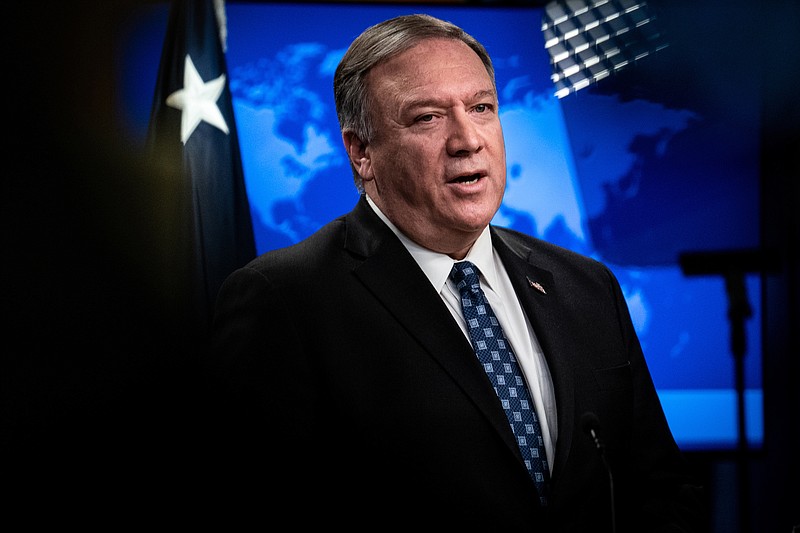Domestic issues have dominated the 2020 presidential campaign so far - the COVID-19 pandemic, the resulting economic fallout and renewed concern about racial inequities.
Likewise, President Donald Trump is mainly using other domestic concerns to distract from these politically damaging issues: the alleged threats to the legitimacy of the election from mail-in ballots, to urban tranquility from continuing demonstrations, and to suburban prosperity from racially diversified housing.
Meanwhile, Trump and his top aides have taken some questionable moves abroad that are receiving far less attention, despite their potential threat to U.S. global security. They range from his continuing efforts to appease Russian President Vladimir Putin to the effort to disrupt relations with China over its failure to prevent the coronavirus from infecting millions around the world.
Trump's plan to reduce one-third of the U.S. military force in Germany certainly seems more in Putin's interest than that of the United States. For 70 years, that force has anchored the North Atlantic Treaty Organization, protecting the United States and Europe by maintaining international stability.
His decision stems less from strategic calculation than his continuing obsession with Germany's failure to meet the 2024 NATO target for members to spend 2% of their gross domestic product on defense.
Implementation will take some time, which means the November election could decide if the withdrawal ever occurs. Advisers to Trump's opponent, Joe Biden, have already indicated doubts over the decision.
One potential long-term danger is that it again signals that, if Trump is re-elected, he may not only reduce American forces in Europe but challenge NATO's future itself.
If that move seems in Putin's interest, so too does Trump's refusal to hold the Russian president accountable after U.S. intelligence concluded Russia was paying the Taliban a "bounty" for killing American forces in Afghanistan.
It's the latest instance where, for unexplained reasons, Trump has refused to stand up to the Russian president.
Since the bounty report first surfaced, Trump has spoken with Putin eight times, on subjects from the COVID-19 pandemic to a new arms control treaty. But last week, he told Axios' Jonathan Swan their conversations didn't include the bounties.
"I have never discussed it with him," Trump told a surprised-looking Swan, explaining, "That was a phone call to discuss other things, and frankly that's an issue that many people said was fake news."
Meanwhile, Secretary of State Mike Pompeo has taken advantage of the rift with China over the COVID-19 pandemic to threaten what could prove to be an almost total break in ties between the world's top two economic powers.
In the latest in a series of anti-China speeches by top officials, Pompeo condemned the entire half-century U.S. effort to pursue economic ties with China, declaring, "The truth is that our policies, and those of other free nations, resurrected China's failing economy, only to see Beijing bite the international hands that fed it."
What made Pompeo's speech more remarkable was that he delivered it at, of all places, the presidential library of Richard Nixon, who opened those relations.
China's reaction was unusually mild, blaming Pompeo's remarks on resentment of Chinese progress. The Chinese may understand it was mainly intended for domestic consumption as part of the effort to blame the pandemic on China, where it originated.
All these potentially significant steps are attracting little attention in a country correctly fixated on the worst health crisis in U. S. history.
But they are a reminder a lot more is at stake in November than the domestic issues that dominate today's headlines.
Tribune Content Agency
